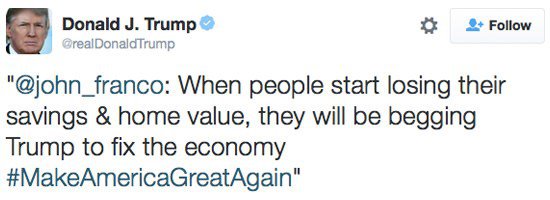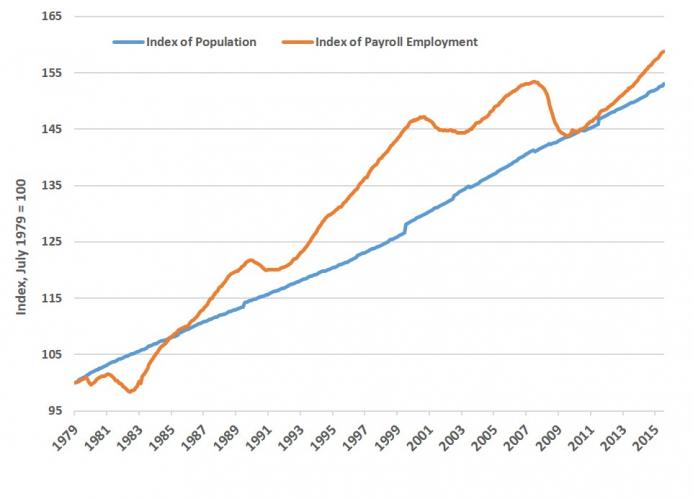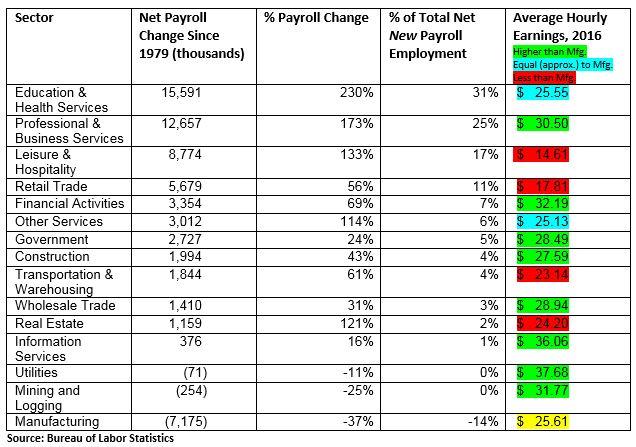Donald Trump and Obi-Wan’s Gambit – Article by Daniel Bier
You Cannot Win By Losing
In Star Wars: A New Hope, the last Jedi Knight, Obi-Wan Kenobi, is confronted by his former pupil, Darth Vader, as he races to escape the Death Star. The two draw their lightsabers and pace warily around each other. After deflecting some heavy blows from Vader, Obi-Wan’s lightsaber flickers, and he appears tired and strained.
Vader gloats, “Your powers are weak, old man.”
The hard-put Obi-Wan replies, “You can’t win, Darth. If you strike me down, I shall become more powerful than you can possibly imagine.”
Obi-Wan backs away from Vader but finds his escape cut off by storm troopers. He is trapped. He gives a mysterious smile, raises his lightsaber, and allows Vader to cut him in half.
This is Obi-Wan’s gambit, or the “win by losing” strategy. Lately, it has emerged as a distinct genre of commentary about Donald Trump.
Take, for example, “The Article About Trump That Nobody Will Publish,” which promotes itself as having been rejected by 45 publications. That’s a credit to America’s editors, because the article is an industrial strength brew of wishful thinking, a flavor that is already becoming standard fare as a Trump presidency looms.
The authors give a boilerplate denunciation of Trump (he’s monstrous, authoritarian, unqualified, etc.), but then propose:
What would happen should Trump get elected? On the Right, President Trump would force the GOP to completely reorganize — and fast. It would compel them to abandon their devastating pitch to the extreme right. …
On the Left, the existence of the greatest impossible dread imaginable, of President Trump, would rouse sleepy mainline liberals from their dogmatic slumber. It would force them to turn sharply away from the excesses of its screeching, reality-denying, uncompromising and authoritarian fringe that provided much of Trump’s thrust in the first place.
Our daring contrarians predict, Trump “may actually represent an unpalatable but real chance at destroying these two political cancers of our time and thus remedying our insanity-inflicted democracy.”
You can’t win, Donald! Strike me down and I shall be… forced to completely reorganize and/or roused from dogmatic slumber!
The authors assert these claims as though they were self-evident, but they’re totally baffling. Why would a Trump win force the GOP to abandon the voters and rhetoric that drove it to victory? Why would it reorganize against its successful new leader? Why would a Hillary Clinton loss empower moderate liberals over the “reality-defying fringe”? Why would the left turn away from the progressives who warned against nominating her all along?
This is pure, unadulterated wishful thinking. There is no reason to believe these rosy forecasts would materialize under President Trump. That is not how partisan politics tends to work. Parties rally to their nominee, and electoral success translates into influence, influence into power, power into friends and support.
We’ve already seen one iteration of this “win by losing” fantasy come and go among the Never Trump crowd: the idea that Trump’s mere nomination would be a good thing, because (depending on your politics) it would (1) compel Democrats to nominate Bernie Sanders, (2) propel Clinton to a landslide general election victory, or (3) destroy the GOP and (a) force it to rebuild as a small-government party, (b) split it in two, or (c) bring down the two-party system.
But, of course, none of those things happened. Clinton has clinched the nomination over Sanders (his frantic protests notwithstanding). Meanwhile, Clinton’s double digit lead over Trump has evaporated, and the race has narrowed to a virtual tie. Far from “destroying the GOP,” Trump has consolidated the support of the base and racked up the endorsements of dozens of prominent Republicans who had previously blasted him, including Marco Rubio and Paul Ryan.
The GOP is not being destroyed — it is being gradually remade in Trump’s image, perhaps into his dream of a populist “workers’ party,” heavy on the protectionism, nativism, and authoritarianism. Meanwhile, knee-jerk partisanship and fear of Clinton are reconciling the center-right to Trump.
Moderates win by defeating the fringe, not by losing to it. Yet, for some reason, conservatives, liberals, and libertarians all like to fantasize that the worst case scenario would actually fulfill their fondest wishes, driving the nation into their losing arms — as though their failure would force the party or the public do what they wanted all along. This is the bad-breakup theory of politics: Once they get a taste of Trump, they’ll realize how great we were and love us again.
But the public doesn’t love losers. (Trump gets this and has based his whole campaign around his relentless self-promotion as a winner.) Trump’s inauguration would indeed be a victory for him and for his “alt-right” personality cult, and a sign of defeat for limited-government conservatives and classical liberals — not because our ideology was on the ballot, but because all our efforts did not prevent such a ballot.
Trump embodies an ideology that is anathema to classical liberalism, and if he is successful at propelling it into power, we cannot and should not see it as anything less than a failure to persuade the public on the value of liberty, tolerance, and limited government. Nobody who is worried about extreme nationalism and strong man politics should be taken in by the idea that their rapid advance somehow secretly proves their weakness and liberalism’s strength.
This does not mean that we’re all screwed, or that a Trump administration will be the end of the world — apocalyptic thinking is just another kind of dark fantasy. As horrible as Trumpism may be, it cannot succeed without help. And here’s the good news: Most Americans aren’t really enamored with Trump’s policies. The bad news is that they could still become policy.
Classical liberals who oppose Trump should realize that things aren’t going to magically get better on their own. We cannot try to Obi-Wan our way out of this. We will have to actually make progress — in education, academia, journalism, policy, activism, and, yes, even electoral politics.
If this seems like an impossible task at the moment, just remember that the long-sweep of history and many trends in recent decades show the public moving in a more libertarian direction. It can be done, and there’s fertile ground for it. We have to make the argument for tolerance and freedom against xenophobia and authoritarianism — and we have to win it. The triumph of illiberalism will not win it for us.
Daniel Bier is the site editor of FEE.org He writes on issues relating to science, civil liberties, and economic freedom.
This article was published by The Foundation for Economic Education and may be freely distributed, subject to a Creative Commons Attribution 4.0 International License, which requires that credit be given to the author.











